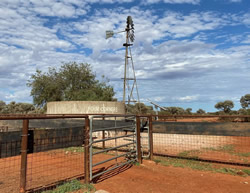 A guide to support Aboriginal landholders interested in taking up opportunities in carbon farming on pastoral lands has been developed by the Department of Primary Industries and Regional Development (DPIRD).
A guide to support Aboriginal landholders interested in taking up opportunities in carbon farming on pastoral lands has been developed by the Department of Primary Industries and Regional Development (DPIRD).
Manager of Aboriginal Economic Development at DPIRD, Melissa Hartmann said the carbon farming guide had been developed especially for use by Aboriginal landholders and native title holders.
“The guide provides an overview of the opportunities and risks associated with Human Induced Regeneration carbon farming and highlights the importance of seeking independent advice at all times,” Ms Hartmann said.
“Human Induced Regeneration carbon farming projects have the potential to improve soil health, water quality and agricultural productivity, which will help build resilience for Aboriginal pastoralists while providing broader economic, social and cultural benefits.”
Ms Hartmann said the Department wanted to make sure Aboriginal pastoral lessees and native title holders were armed with the knowledge and independent information to help in decision-making that would best benefit their businesses.
The guide was launched at the DPIRD’s recent Southern Rangelands information session held in Geraldton.
More information, including a copy of the guide, can be found at the Department of Primary Industries and Regional Development website at this PS News link.








